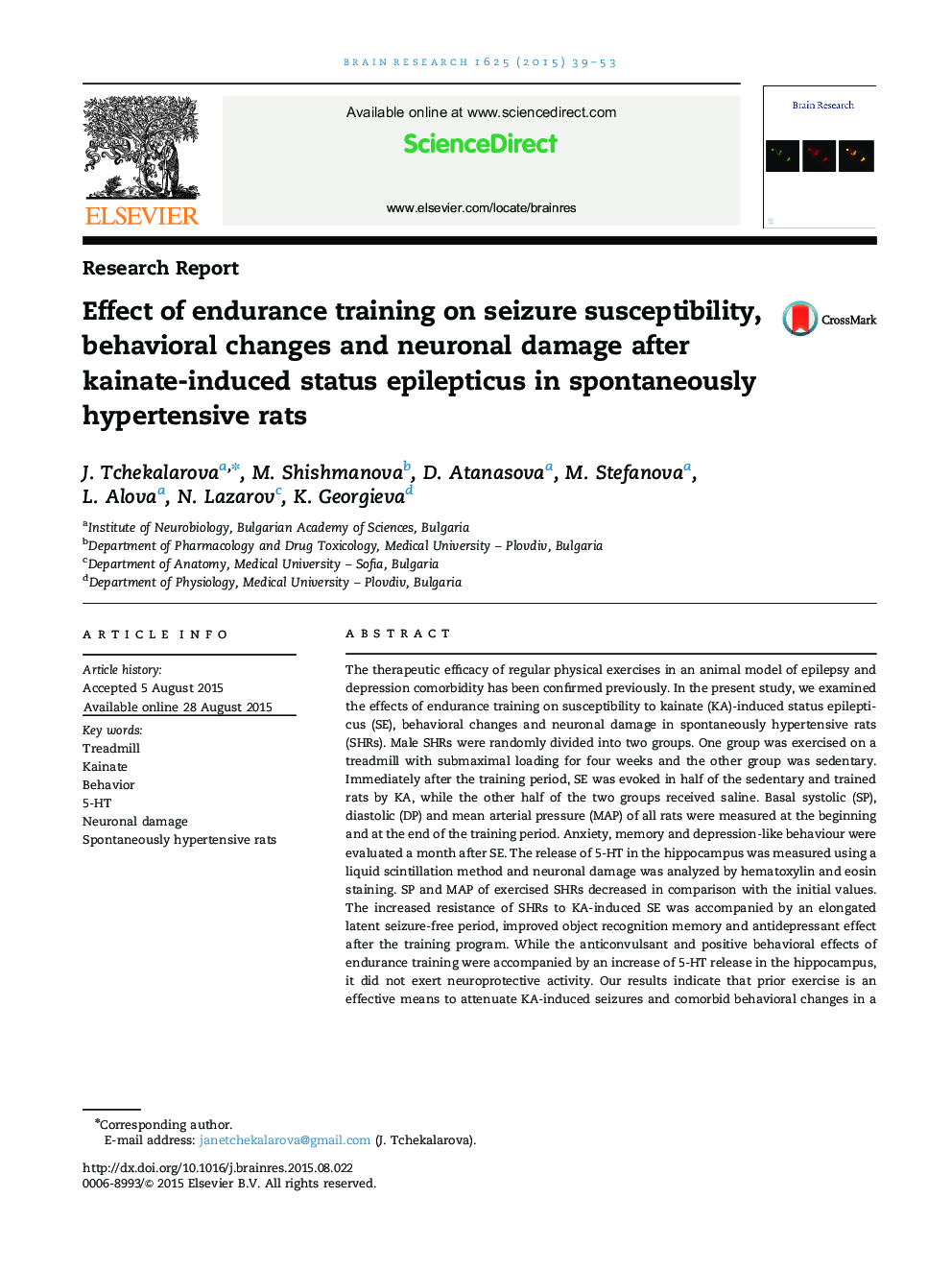| Article ID | Journal | Published Year | Pages | File Type |
|---|---|---|---|---|
| 6262839 | Brain Research | 2015 | 15 Pages |
â¢Aerobic training had beneficial effect on blood pressure in SHRs.â¢Exercise alleviated the development of KA-induced SE and epileptogenesis in SHRs.â¢Exercise positively affected concomitant behavioral changes in KA-treated SHRs.â¢Exercise increased hippocampal 5-HT release in KA-treated SHRs.â¢Exercise did not perevent SE-induced brain damage in SHRs.
The therapeutic efficacy of regular physical exercises in an animal model of epilepsy and depression comorbidity has been confirmed previously. In the present study, we examined the effects of endurance training on susceptibility to kainate (KA)-induced status epilepticus (SE), behavioral changes and neuronal damage in spontaneously hypertensive rats (SHRs). Male SHRs were randomly divided into two groups. One group was exercised on a treadmill with submaximal loading for four weeks and the other group was sedentary. Immediately after the training period, SE was evoked in half of the sedentary and trained rats by KA, while the other half of the two groups received saline. Basal systolic (SP), diastolic (DP) and mean arterial pressure (MAP) of all rats were measured at the beginning and at the end of the training period. Anxiety, memory and depression-like behaviour were evaluated a month after SE. The release of 5-HT in the hippocampus was measured using a liquid scintillation method and neuronal damage was analyzed by hematoxylin and eosin staining. SP and MAP of exercised SHRs decreased in comparison with the initial values. The increased resistance of SHRs to KA-induced SE was accompanied by an elongated latent seizure-free period, improved object recognition memory and antidepressant effect after the training program. While the anticonvulsant and positive behavioral effects of endurance training were accompanied by an increase of 5-HT release in the hippocampus, it did not exert neuroprotective activity. Our results indicate that prior exercise is an effective means to attenuate KA-induced seizures and comorbid behavioral changes in a model of hypertension and epilepsy suggesting a potential influence of hippocampal 5-HT on a comorbid depression. However, this beneficial impact does not prevent the development of epilepsy and concomitant brain damage.
